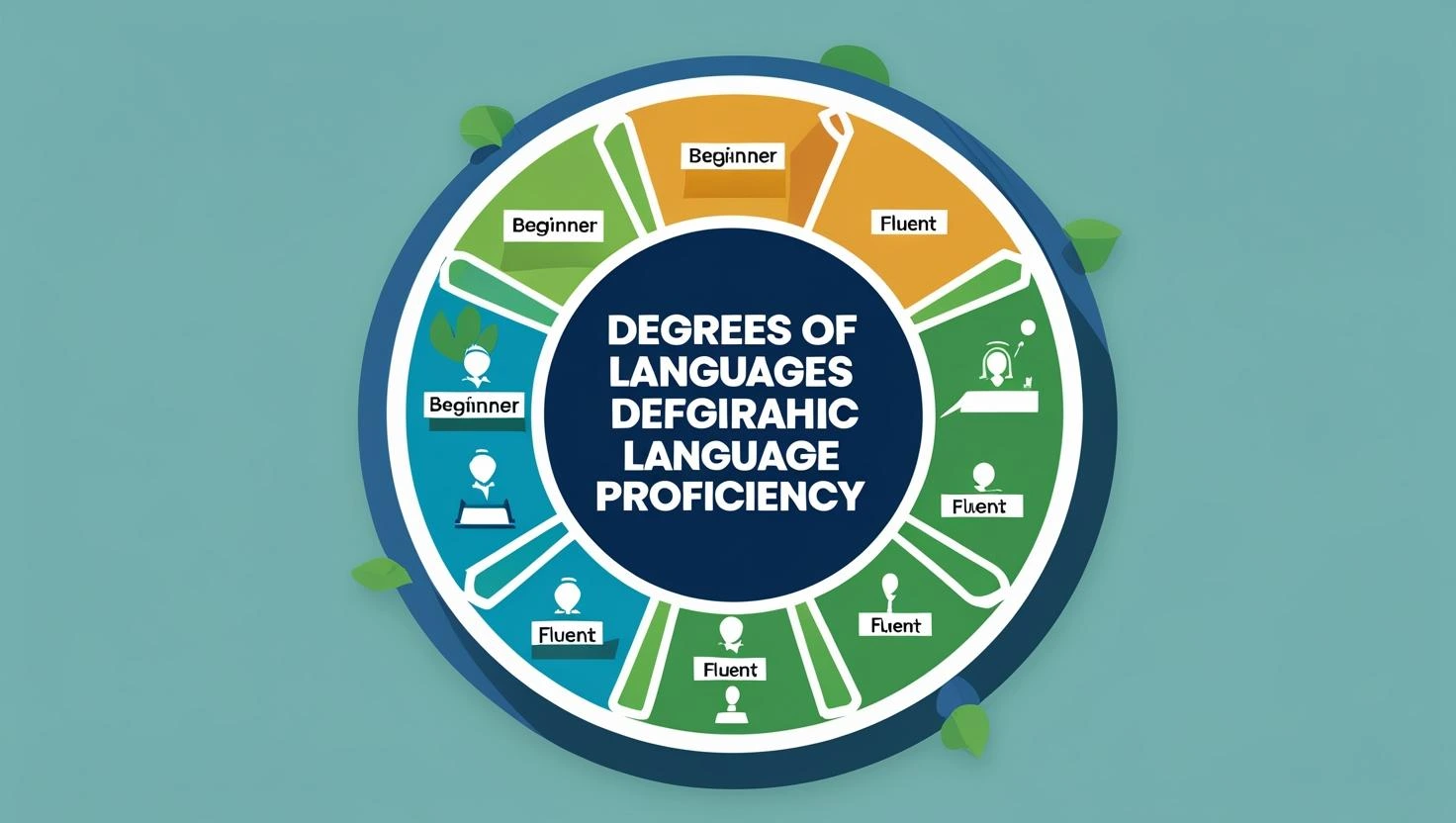Whether you’re applying for a job, enrolling in a university, or planning to live abroad, your English proficiency can significantly impact your opportunities. But what does it really mean to be “proficient” in English? Understanding the degrees of language proficiency helps you track your progress, set goals, and choose the right certification.
In this guide, we’ll break down the key levels of English fluency, explain how they are assessed, and introduce the International English Test (IET) as a flexible, recognized tool for certification.
📘 What Are Degrees of Language Proficiency?
Language proficiency levels describe how well someone can speak, understand, read, and write in a language. The most commonly used global standard is the CEFR (Common European Framework of Reference for Languages), which organizes proficiency into six levels: A1, A2, B1, B2, C1, and C2.
🌍 The CEFR Scale: Six Levels Explained
Here’s a detailed look at each CEFR level:
🟢 A1 – Beginner
- Can understand and use basic everyday expressions.
- Can introduce themselves and ask/answer simple questions.
🟢 A2 – Elementary
- Can communicate in simple, routine tasks.
- Can describe personal background, family, and immediate needs.
🟡 B1 – Intermediate
- Can handle travel situations, describe experiences, and express opinions.
- Can write simple connected texts on familiar topics.
🟡 B2 – Upper Intermediate
- Can interact with native speakers fluently on a range of subjects.
- Can produce clear, detailed text on abstract topics.
🔵 C1 – Advanced
- Can understand long, complex texts and recognize implicit meaning.
- Can express themselves fluently and effectively in social, academic, and professional settings.
🔵 C2 – Proficient
- Can understand virtually everything heard or read.
- Can summarize information from different sources and express themselves precisely.
✅ Tip: You can assess your English proficiency level from A1 to C2 using the International English Test (IET) — a fast, online, and affordable certification platform.
🎯 Why Are Language Proficiency Levels Important?
Understanding the degrees of language proficiency is crucial for:
- 🎓 Education: Most universities require a B2 or C1 level for English-taught programs.
- 💼 Employment: Employers often ask for proof of English skills for international roles.
- ✈️ Visas & Immigration: Many countries require a certified level of English for residency or citizenship.
- 📈 Self-improvement: Knowing your level helps you choose the right materials and learning goals.
🧾 How Are Proficiency Levels Tested?
Language proficiency is typically evaluated across four main skills:
- Listening
- Reading
- Writing
- Speaking
Some of the most recognized English tests that assess these skills and assign CEFR levels include:
🧪 IELTS (International English Language Testing System)
- Provides scores from 1 to 9, which map roughly to CEFR levels.
🧪 TOEFL (Test of English as a Foreign Language)
- Widely used in North America, especially for university admission.
🧪 Cambridge Exams (A2 Key to C2 Proficiency)
- Directly aligned with CEFR levels.
🧪 International English Test (IET)
- Fully online and AI-powered.
- Provides CEFR-aligned certificates from A1 to C2.
- Includes Grammar, Vocabulary, Listening, Reading, Speaking, and Writing tests.
- Offers instant results and downloadable certificates with optional add-ons like photo ID, lifetime verification, and printed copy.
🎓 Take your English proficiency test now
📜 English Certificates and What They Mean
| CEFR Level | Description | Common Use Cases | Certificate Options |
|---|---|---|---|
| A1-A2 | Beginner–Elementary | Basic communication, survival English | IET, A2 Key (Cambridge) |
| B1 | Intermediate | Travel, work in English-speaking environments | IET, B1 Preliminary (PET) |
| B2 | Upper Intermediate | Academic readiness, office work | IET, Cambridge B2 First, IELTS 6.0+ |
| C1 | Advanced | University admission, professional roles | IET, Cambridge C1 Advanced, IELTS 7.5+ |
| C2 | Proficient | Near-native fluency, teaching or legal contexts | IET, Cambridge C2 Proficiency, IELTS 8.5+ |
🧠 How to Improve Your English Proficiency Level
To advance from one level to the next, follow these tips:
- 📚 Practice All Four Skills – Don’t just focus on reading; also speak, write, and listen daily.
- 🎧 Immerse Yourself – Watch movies, listen to podcasts, and follow English-speaking social media.
- 🗣️ Practice Speaking – Join conversation clubs or take part in online speaking classes.
- 📝 Take Regular Tests – Track your progress with standardized tests like the IET.
- 📘 Study Strategically – Use level-appropriate books, apps, and exercises aligned with CEFR.
📌 Conclusion: Start With the Right Test
Knowing your degree of language proficiency is the first step toward achieving your goals. Whether you’re aiming for academic success, global job opportunities, or visa applications, having a certified CEFR level makes all the difference.
✅ The International English Test (IET) offers a fast, flexible, and affordable way to test your English level, receive a CEFR-aligned certificate, and move forward with confidence.

